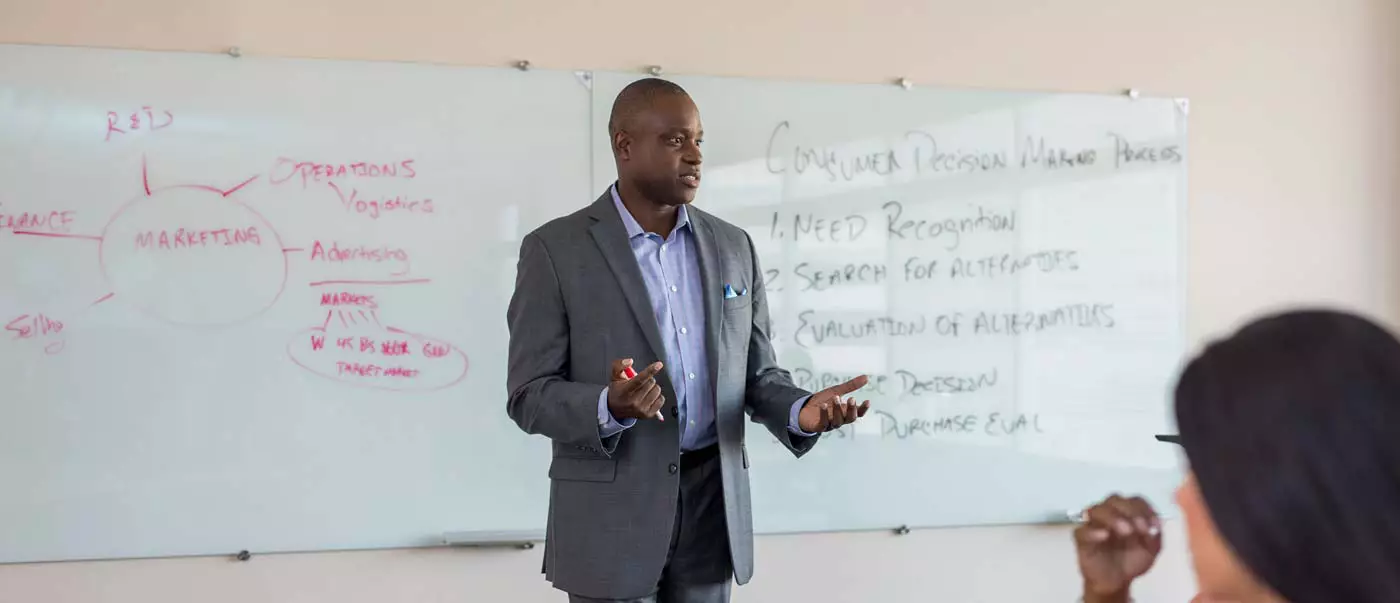The Scholar-Practitioner-Leader: An Introduction
By Mark McCaslin
Understanding the Concept of SPL Model

The concept of Scholar-Practitioner-Leader (SPL) is one which embodies a sort of leadership alchemy. This alchemy combines knowledge, skills, and leadership abilities and, more often than not, leads to greater personal effectiveness. It also contributes to greater effectiveness within the organizations, communities, or schools, or an integration of these groups – also referred to as a community of practice – which this type of individual serves.
The Whole is Greater than the Sum of Its Parts
The Scholar, Practitioner, Leader ModelSM (SPL) is the educational framework used by the College of Doctoral Studies as part of its doctoral programs. However, this framework does not stop upon completion of a student’s degree.
As noted on the University of Phoenix program, “This innovative and dynamic model focuses on supporting lifelong learning (scholarship), social and workplace contribution (practice), and the ability to exert positive influence (leadership) on the scholar/practitioner/leader at the intersections of their academic, professional and personal lives.” This integral approach incorporates the concepts of scholarship, practice, and leadership as practitioners seek to solve immediate and local problems and make a positive impact for the organizations, schools, and communities they serve.
By this definition, the scholar/practitioner/leader is able to connect theory, learning, and practice in the individual’s field. Separately, a scholar, a practitioner, and a leader can accomplish many things, but in combination, the whole is truly greater than the sum of its parts.

Defining the Scholar-Practitioner-Leader
The SPL possesses the personal qualities and practices that enhance the ability to build effective relationships and thus personal and professional networks. This ability to socialize their experience and research findings ensures their work's widest possible reach, ultimately increasing its meaningful impact.
From the perspective of the SPL, leadership is more art than science. As an art, leadership is seen as an idea that would advance the potential and possibilities of the community of practice. This adventure of ideas is the playground for our SPL. It leads to an informed and practical response for addressing the immediate problems and opportunities apparent to the community of practice. The SPL understands that a recipe of knowledge, skills, and leadership abilities will determine how we solve problems or respond to opportunities. Successful efforts will ultimately advance the organization, school, and/or the community.
In theory, leadership is a simple concept. In practice, leadership is messy. The SPL manages this complexity by forging a common purpose, objective, or vision aimed at solving the problem, seizing the opportunity at hand, and building relationships around these ever-emerging problems and opportunities. Addressing the complex and often irrational nature of human beings requires a level of emotional agility few are able to master, and there are no shortcuts to acquiring it. Success is all about consistent practice and grit, and that practice is something our SPL embraces with dedication.
SPLs act as transformative and enlivening forces within these sustainable systems and themselves transform from a thought leader to a producer of change. The SPL mixes his or her knowledge, skills, and leadership abilities to create a regenerating flywheel of ideas, solutions, and support.

ABOUT THE AUTHOR
Dr. Mark MCaslin
Bio
Dr. Mark McCaslin is a academic leader with a rich history of teaching, educational programming, and administration. His personal and professional interests flow around the development of philosophies, principles, and practices dedicated to the full actualization of human potential. The focus of his research has centered upon healthy organizational leadership and educational approaches that foster a more holistic approach towards the actualization of that potential. At the apex of his current teaching, writing, and research is the emergence of healthy leadership and the potentiating arts.